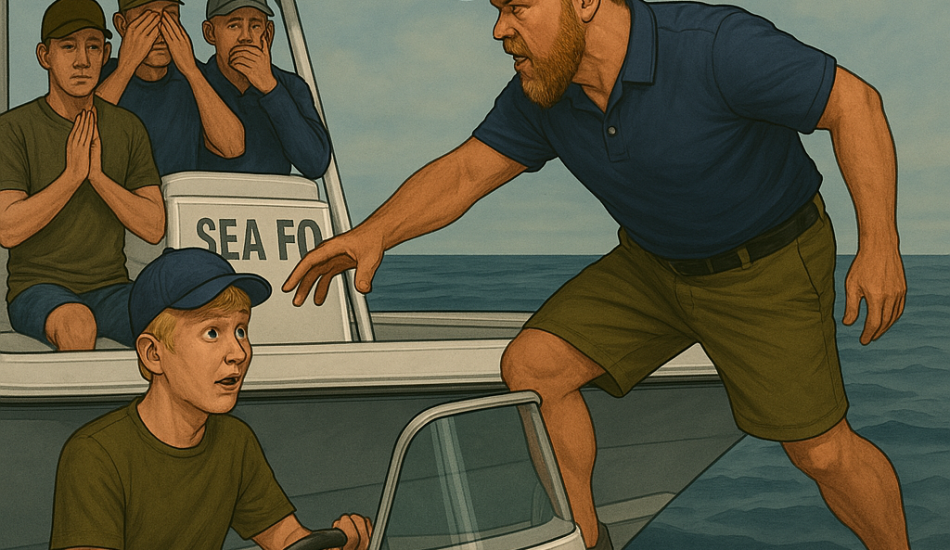Could the Passengers on Brock Horner’s Boat Be Charged for Failing to Stop the Assault?

In the aftermath of the now-infamous boating incident involving Captain Brock Horner, one legal question continues to surface: Can the four passengers on Horner’s boat face criminal charges for not stepping in to stop the alleged assault and burglary?
It’s a fair question. The video evidence has ignited widespread debate, especially given the disturbing nature of Horner’s conduct and the apparent inaction of his passengers. Horner has already been arrested for burglary with a battery, charges I predicted in our prior post on the Horner case.
Florida Law on “Failure to Intervene”
Under Florida law, there is no general legal duty for a bystander to intervene in a crime—no matter how violent or outrageous the conduct may be. Private citizens are not criminally liable simply for failing to stop an assault or battery, even if they have an opportunity to do so.
There is one narrow exception: law enforcement officers have a legal duty to intervene in specific circumstances. For example, under § 112.533(1)(a), a law enforcement officer who witnesses another officer using unlawful deadly force is obligated to intervene and report the misconduct. But this duty applies only to officers acting within the scope of their professional responsibilities—and has no bearing on the Brock Horner incident, where none of the passengers, from what we know, were law enforcement.
Could the Passengers Still Face Charges?
While Florida law does not criminalize mere inaction, there is a scenario in which the passengers could be charged: if evidence emerges showing that they were principals to the crime.
What is a Principal?
In Florida, a “principal” is someone who helps another person commit a crime—whether by planning, encouraging, assisting, or participating in any meaningful way. Under § 777.011 of the Florida Statutes, a principal can be held just as responsible as the person who actually committed the crime.
To prove someone is a principal, prosecutors must show two things:
- The person intended for the crime to be committed.
- The person did or said something that helped, encouraged, caused, or advised the commission of the crime.
Does the Current Evidence Support Charges?
Based on publicly available footage and reporting, there’s no clear evidence that any of the four passengers acted as principals. They appear to have remained silent throughout the incident. None are seen participating, assisting, or encouraging Horner. He appears to have been the only one operating the boat and directly confronting the young man and jumping on his boat.
Unless new facts emerge—such as text messages, verbal encouragement, or prior planning—it’s unlikely the passengers will be charged with any crime. In Florida, inaction alone does not make someone criminally responsible.
Inaction Can Have Consequences
Even if their conduct does not amount to criminal liability, the passengers’ failure to act—particularly in the face of aggression directed at a younger, outnumbered individual—has not gone unnoticed. Many believe is reprehensible that four adult men seemingly made no effort to de-escalate the confrontation, protect the victim, or distance themselves from Horner’s conduct. The moral obligation to act was clear, even if the legal duty was not.
Their silence may shield them from prosecution, but it likely won’t shield them from public scrutiny. Now that Horner has been charged, they will be key witnesses. Their names will appear in police reports, court transcripts, and news coverage. Their trial testimony may be widely publicized on television and social media. And they will almost certainly continue to be judged—harshly—by the public.
Final Thoughts
Florida law distinguishes between failing to act and actively helping someone commit a crime. Unless prosecutors can prove the passengers intended for Horner to carry out the assault and contributed to it in some way, criminal charges are unlikely.
But this incident serves as a harsh reminder: the absence of a legal duty does not absolve the absence of moral courage. In moments of violence and intimidation, silence may not be viewed as neutrality. Rather, it may be seen as moral complicity in everything that follows.



